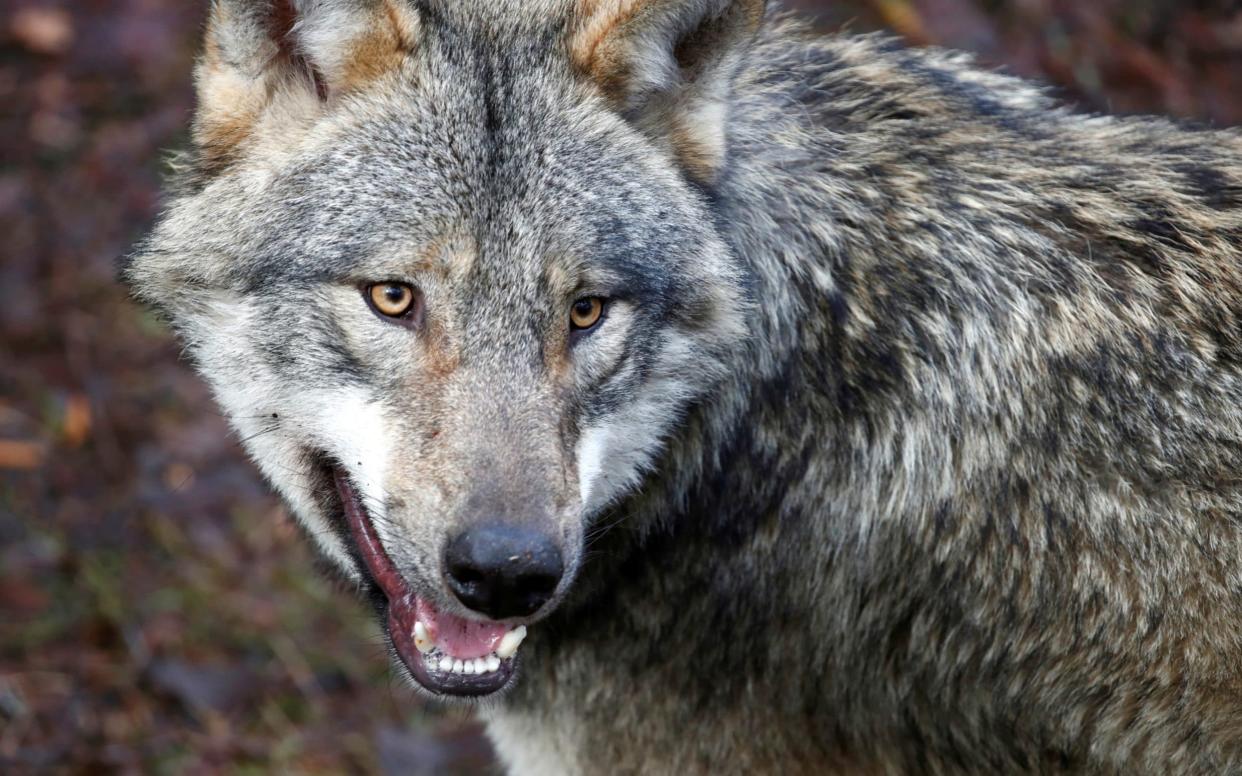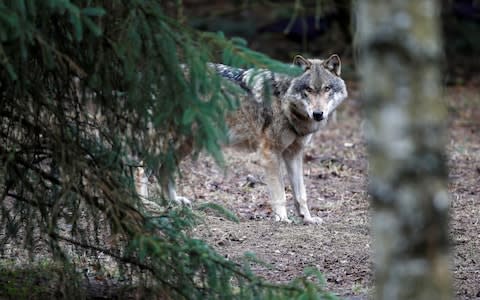Germany relaxes laws on wolf culling amid attacks on livestock

Germany slightly relaxed its tough laws on the culling of wolves on Wednesday, amid concern growing numbers pose a threat to livestock.
Under new rules introduced by Angela Merkel’s government, licensed hunters will be called in to shoot wolves where there have been clear attacks on livestock.
As it is often impossible to tell which animal carried out an attack, the reform raises the possibility that entire packs will be shot.
Previously it was only permitted to cull wolves that could be shown to pose a threat to human safety.
The new regulations are a response to the wolf’s dramatic comeback in Germany. Just twenty years ago, there were none left, after the species was hunted to extinction in the early 20th century.
But they returned naturally after the fall of communism, crossing the border from Poland after fences were removed, and today more than 30 packs are believed to roam the country.
In 2015, a wolf pack was photographed just 30 miles from Hamburg, Germany’s second largest city, and wolves have been spotted wandering into villages and built-up areas in search of food.

Official government figures put the number of wolves at around 400, while farmers’ associations say there are more than 1,000.
While the wolves’ return has been greeted as a success story by conservationists, farmers are not so happy. They say strict protection laws have left them powerless to protect their livestock from the wolves.
The new regulations were approved by Mrs Merkel’s government on Wednesday after the environment minister. Svenja Schulze, dropped a demand that the particular wolf responsible for a livestock attack be identified. Instead, any wolf in the area of a serious attack could face culling.
“I am glad the environment ministry has moved on this,” Julia Klöckner, the agriculture minister said. “It’s not possible to explain to normal-mided people that rampaging wolves can only be shot after DNA tests.”
The new regulations have faced criticism from environmentalists. “The call for hunting rights and upper limits is populist grandstanding,” Diana Pretzell of the Worldwide Fund for Nature (WWF) said earlier this year. “Hunting wolves does nothing to resolve conflicts.”
The relaxing of the ban is in part a response to the nationalist Alternative for Germany party (AfD), which has made the issue a central part of its campaign ahead of key regional elections in eastern Germany later this year.
But there will be no open season on wolves, and no opportunity for amateur hunters to try their hand.
Hunting is strictly controlled in Germany, and only licensed hunters will be allowed to shoot the animals.

